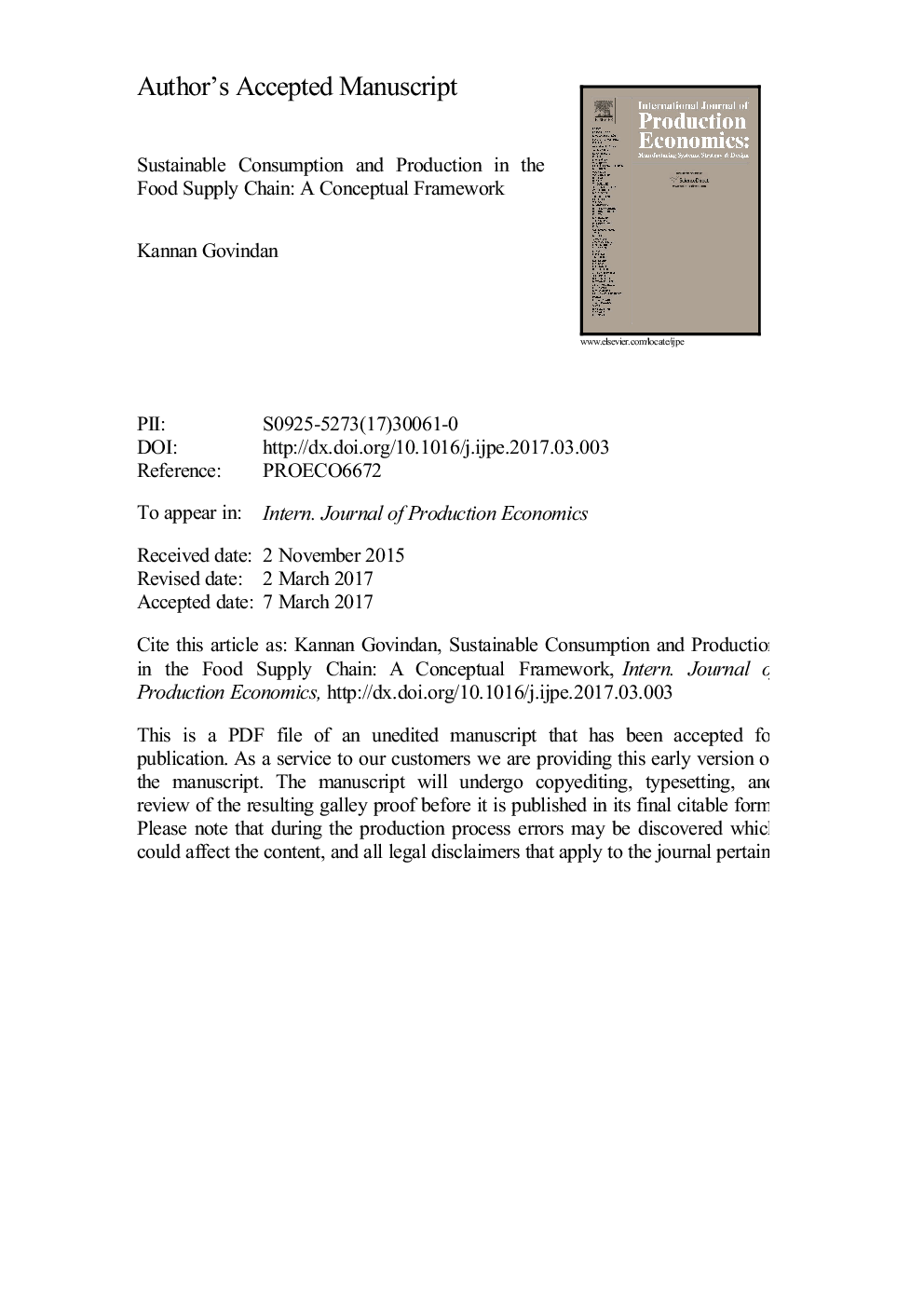ترجمه فارسی عنوان مقاله
مصرف و تولید پایدار در زنجیره تامین مواد غذایی: یک چارچوب مفهومی
عنوان انگلیسی
Sustainable consumption and production in the food supply chain: A conceptual framework
| کد مقاله | سال انتشار | تعداد صفحات مقاله انگلیسی |
|---|---|---|
| 83473 | 2018 | 43 صفحه PDF |
منبع

Publisher : Elsevier - Science Direct (الزویر - ساینس دایرکت)
Journal : International Journal of Production Economics, Volume 195, January 2018, Pages 419-431
ترجمه کلمات کلیدی
مصرف و تولید پایدار، توسعه تئوری، زنجیره تامین مواد غذایی، چارچوب مفهومی،
کلمات کلیدی انگلیسی
Sustainable consumption and production; Theory development; Food supply chain; Conceptual framework;

